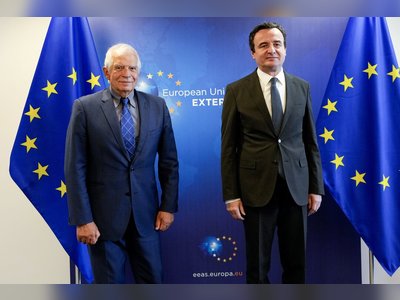Angela Merkel's Pension and Earnings Post-Politics
The former German Chancellor receives a pension significantly higher than the national average and benefits from various income streams.
Angela Merkel, who served as Chancellor of Germany for 16 years, stepped down from active politics at the end of 2021. Since her departure from the political arena, there has been considerable public interest in her pension and additional sources of income, particularly due to the substantial amount she receives and the privileges afforded to her as a former Chancellor.
According to calculations by the German Federation of Taxpayers, Merkel's pension is approximately €15,000 per month.
This figure is based on her extensive political career, which includes:
- Her years of service as a member of the Bundestag
- Her tenure as Minister for the Environment
- 16 years as Chancellor of the Federal Republic of Germany.
In comparison, the average pension in Germany is around €1,550 gross per month, meaning Merkel's income exceeds the national average by more than eight times.
In addition to her pension, like all former Chancellors, Merkel is entitled to benefits that include a personal office, a head of office, advisors, a secretary, and a chauffeur.
These provisions are funded by the German state and are regulated by law, aimed at easing the lives of former high-ranking officials who have held significant governmental positions.
Alongside her pension, Merkel earns additional income through her literary endeavors.
In 2024, she published an autobiography titled "Freiheit" (Freedom), which quickly became the best-selling book of the year in Germany, selling over 200,000 copies in its first week of release.
Expert estimates suggest that Merkel could have earned between €800,000 in the first week alone, based on an author’s royalty of 5 to 10 percent of the net sales.
Although formally retired, Merkel’s influence and presence in public life remain notable.
She continues to participate in international events and receives various awards and recognitions.
The public and media interest surrounding her autobiography reflects her ongoing visibility and significance in contemporary discourse.
Given the substantial nature of her pension, institutional privileges, and additional income from literary successes, it is evident that Merkel's financial situation post-politics remains robust.
According to calculations by the German Federation of Taxpayers, Merkel's pension is approximately €15,000 per month.
This figure is based on her extensive political career, which includes:
- Her years of service as a member of the Bundestag
- Her tenure as Minister for the Environment
- 16 years as Chancellor of the Federal Republic of Germany.
In comparison, the average pension in Germany is around €1,550 gross per month, meaning Merkel's income exceeds the national average by more than eight times.
In addition to her pension, like all former Chancellors, Merkel is entitled to benefits that include a personal office, a head of office, advisors, a secretary, and a chauffeur.
These provisions are funded by the German state and are regulated by law, aimed at easing the lives of former high-ranking officials who have held significant governmental positions.
Alongside her pension, Merkel earns additional income through her literary endeavors.
In 2024, she published an autobiography titled "Freiheit" (Freedom), which quickly became the best-selling book of the year in Germany, selling over 200,000 copies in its first week of release.
Expert estimates suggest that Merkel could have earned between €800,000 in the first week alone, based on an author’s royalty of 5 to 10 percent of the net sales.
Although formally retired, Merkel’s influence and presence in public life remain notable.
She continues to participate in international events and receives various awards and recognitions.
The public and media interest surrounding her autobiography reflects her ongoing visibility and significance in contemporary discourse.
Given the substantial nature of her pension, institutional privileges, and additional income from literary successes, it is evident that Merkel's financial situation post-politics remains robust.
AI Disclaimer: An advanced artificial intelligence (AI) system generated the content of this page on its own. This innovative technology conducts extensive research from a variety of reliable sources, performs rigorous fact-checking and verification, cleans up and balances biased or manipulated content, and presents a minimal factual summary that is just enough yet essential for you to function as an informed and educated citizen. Please keep in mind, however, that this system is an evolving technology, and as a result, the article may contain accidental inaccuracies or errors. We urge you to help us improve our site by reporting any inaccuracies you find using the "Contact Us" link at the bottom of this page. Your helpful feedback helps us improve our system and deliver more precise content. When you find an article of interest here, please look for the full and extensive coverage of this topic in traditional news sources, as they are written by professional journalists that we try to support, not replace. We appreciate your understanding and assistance.










